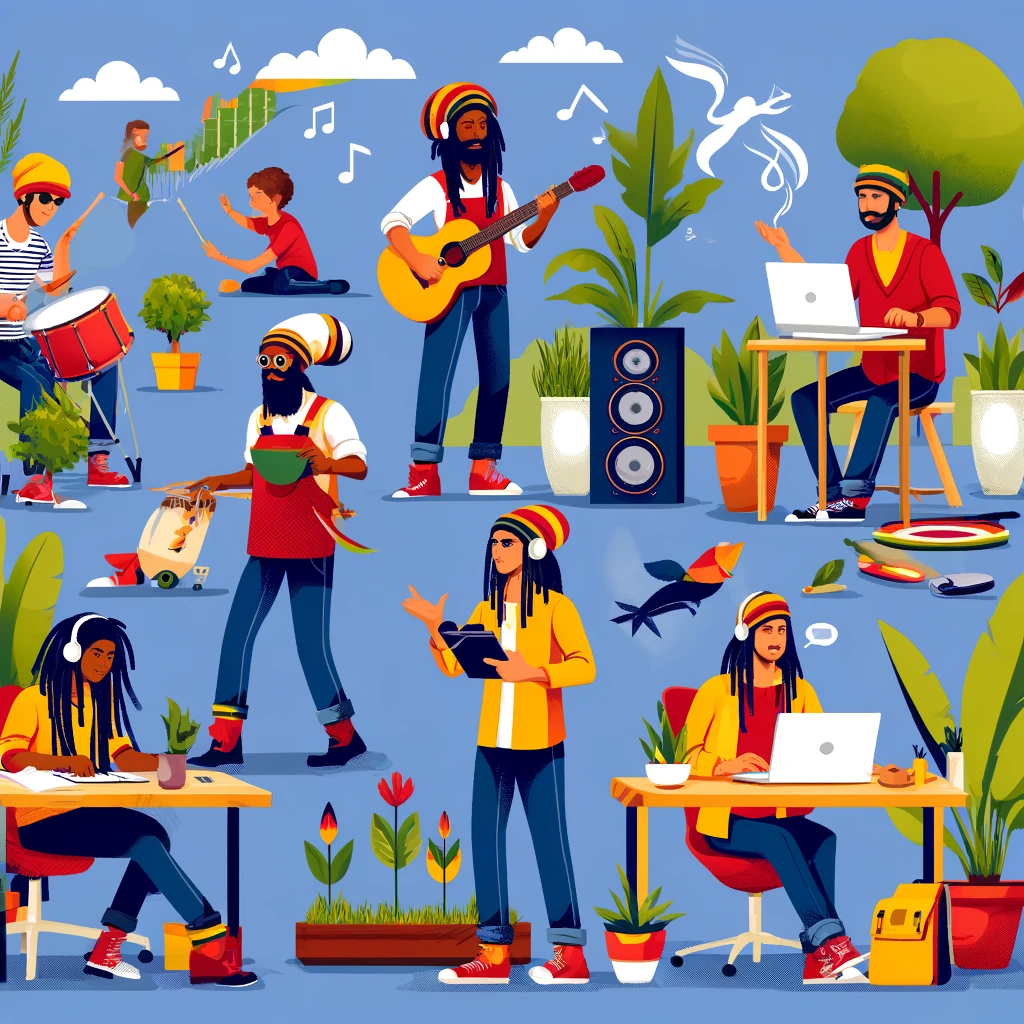Introduction: Rastafari culture has evolved over the decades, and today’s Rastafarians are a blend of traditional beliefs and modern influences. While the core principles of peace, love, unity, and reverence for Jah remain unchanged, modern day Rastas are embracing new ways to express their faith and culture. Let’s explore how Rastafarians are navigating the contemporary world while staying true to their roots.
Technology and Connectivity: In the digital age, Rastafarians are using technology to spread their message and connect with a global community. Social media platforms, websites, and blogs allow Rastas to share teachings, music, and cultural events with a wider audience. This connectivity helps to foster a sense of unity and allows for the exchange of ideas and experiences across borders.
Music and Media: Reggae music continues to be a powerful vehicle for Rastafari messages, but modern Rastas are also exploring other genres and forms of media. Artists are blending reggae with hip-hop, jazz, and electronic music, creating new sounds that appeal to younger generations while still carrying the essence of Rastafari. Documentaries, podcasts, and YouTube channels dedicated to Rastafari culture are also gaining popularity, offering insights into the faith and lifestyle.
Sustainable Living: Sustainability is a key aspect of modern Rastafari life. Many Rastas are advocates for organic farming, renewable energy, and eco-friendly practices. Communities are establishing urban gardens, participating in environmental activism, and promoting Ital living as a way to maintain harmony with nature. These efforts reflect the traditional Rastafari emphasis on living naturally and responsibly.
Fashion and Art: Rastafari fashion has also evolved, blending traditional elements with contemporary styles. Modern Rastas express their identity through colorful clothing, dreadlocks, and accessories that reflect their cultural heritage. Additionally, Rastafarian art is gaining recognition in mainstream galleries and exhibitions, showcasing vibrant paintings, sculptures, and crafts that convey spiritual and cultural themes.
Social Activism: Modern Rastafarians continue to be deeply involved in social and political activism. They advocate for human rights, social justice, and equality, drawing inspiration from the teachings of Marcus Garvey and Haile Selassie I. Today’s Rastas are participating in movements for racial justice, environmental protection, and economic empowerment, using their voice to bring about positive change.
Health and Wellness: The focus on health and wellness remains strong among modern Rastas. Many are embracing holistic health practices, including herbal medicine, yoga, and meditation. The Ital diet, emphasizing natural and unprocessed foods, is being adapted to contemporary lifestyles, promoting physical and spiritual well-being.
Closing Thoughts: Modern day Rastas are a testament to the enduring spirit of Rastafari. By embracing innovation while staying true to their roots, they are keeping the culture vibrant and relevant. The fusion of tradition and modernity allows Rastafarians to navigate the contemporary world with grace and resilience, continuing to spread their messages of peace, love, and unity.

